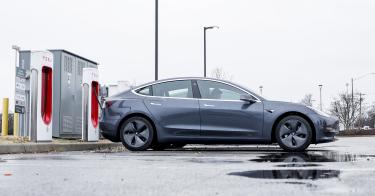In a move that’s good news for drivers nationwide, Virginia has declared its independence from California’s latest automotive standards. Attorney General Jason Miyares and Gov. Glenn Youngkin announced on June 5 that, starting next year, the state will comply with federal standards.
“EV mandates like California’s are unworkable and out of touch with reality, and thankfully the law does not bind us to their regulations,” said Miyares.
The previous Virginia governor, Democrat Ralph Northam, signed a bill in 2021 to embrace the automobile standards of the California Air Resource Board.
These 2021 standards would have forced auto dealers to sell a certain share of battery-powered cars in 2025, or face penalties. But California’s new Advanced Clean Car II standards, passed in 2022, require 35% of new passenger cars, trucks and SUVs sold in the Golden State to be electric or hydrogen-fueled by 2036, and 100% by 2035—far stricter than the bill signed by Northam, as Miyares notes in his opinion.
>>> Major Questions Raised by EPA’s EV Mandates
Virginia was one of 16 states and the District of Columbia that signed on to California’s 2021 standards. Returning to the federal standard is not only in the best interests of the commonwealth of Virginia, but also in the best interests of the United States. Virginia is the first to abandon California’s new regulations and may start a tidal wave as others leave too.
The commonwealth’s economy depends on reliable, affordable transportation for people and businesses. Farmers can’t use electric tractors. Small businesses rely on gasoline-powered pickup trucks. Construction workers need inexpensive cars to get to sites far from mass transit.
Regulations requiring EV sales are highly unpopular, and Youngkin’s opponents will lose by challenging him.
California’s auto regulations aim to reduce total global carbon emissions, of which America’s share is 13%, but these rules may not succeed. A battery-only electric vehicle has no tailpipe emissions, but emissions are generated from making the electricity, as well as from producing batteries, mining battery ingredients such as lithium, shipping batteries from China and disposing of spent batteries.
Even if America were to stop using all fossil fuels today, worldwide temperatures would only be two-tenths of one degree cooler by 2100, according to government models.
People aren’t choosing EVs for four reasons.
- EVs cost more than equivalent gasoline-powered vehicles. The Ford Lightning, the electric version of the Ford 150 pickup truck, one of America’s top selling vehicles, costs an additional $17,000. Tesla’s prices begin at $42,000 for a Model 3, and reach $100,000 for a Model X.
- Owning an EV is convenient for drivers who can charge them at home overnight and who don’t travel out of range. For others, stopping for an hour to recharge during the day while out on business, or while on a vacation trip, is a major drawback.
- EVs are smaller, and it’s hard to fit three car seats in the back row. Plus, with kids, who wants to have to stop to recharge?
- EVs lose 40% of their battery range when the temperature dips below 20 degrees Fahrenheit and when the heating is on. That’s why Wyoming has only 840 registered EVs, North Dakota has 640 and Alaska has 1,970.
In addition, China makes 80% of the world’s electric batteries and controls 60% of the world’s critical minerals that are used to make the batteries. Required use of EVs, rather than U.S. oil and natural gas resources, makes America depend on China. Youngkin wisely rejected the Ford partnership with Chinese battery giant CATL in 2023.
>>> Electric Vehicle Enthusiasm Loses Power
Apple has withdrawn from developing an EV. Ford lost $100,000 per EV sold in the first quarter of this year and announced a pause in its delivery of the new F-150 Lightning, citing quality-control problems. Mercedes no longer plans to go all electric by 2030. General Motors has abandoned its goal of selling 400,000 EVs by June 2024.
Dealers’ lots are overflowing with unsold EVs. More than 4,500 auto dealers wrote to President Joe Biden asking him to delay the Environmental Protection Agency’s mandate that 70% of new cars sold must be electric by 2032.
Compulsory EVs increase poverty. With cars more expensive, people either have no car, or are forced into less reliable used cars, with a smaller choice of jobs or schools.
As long as people have a choice, they won’t buy EVs in numbers that California regulations are requiring. Fortunately, Virginia is taking a smarter route.
This piece originally appeared in MSN



